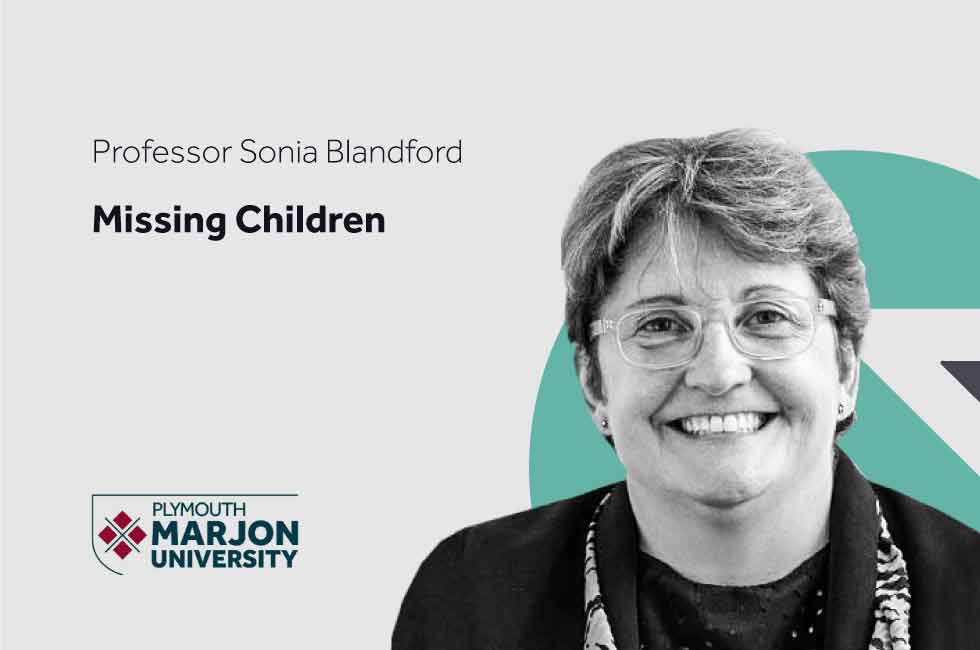As we move into the second year of our work at the Foundation for Education Development (FED) and following the launch of the FED National Education Consultation Report, we are hosting a series of roundtable discussions to inform our thinking around a long term vision and plan for education.
We asked Sonia Blandford, Professor of Social Mobility at Plymouth Marjon University, to share her thinking surrounding ‘Missing Children’. In this powerful thinkpiece, Sonia suggests ‘to address the major issue of ‘missing children’ would require government departments to work together in the interest of all children’.
Missing Children
Since 2009, I have been supporting the design and implementation of the Teach First Norway programme in Oslo. This month, when delivering a coaching session for trainee teachers, a candidate1 shared that two of his Year 10 students – twin girls, aged 16, Somali heritage without any warning had been removed that day from the school by their father. The family – father and girls – would be moving to London to a place from which they had been removed five years earlier in a move to Oslo. The candidate, a maths teacher, was rightly concerned. Both girls would have achieved good grades across all subjects, they were due to be assessed at the start of April 2022.
In addition to this very specific case, I cannot begin to estimate the number of displaced children arriving in England from the Ukraine and other war zones across the world.
Sadly, these events are set within a context of a shocking report delivered by the Children’s Commissioner on Missing Children in Schools2. The report contains two alarming findings:
- No one knows how many children there are in England, there are hundreds that have never been tracked by Local Authorities
- Of the known children – those registered to attend schools – 1.7 million did not attend regularly in the Autumn Tern 2021, 22% are persistently absent.
Whilst the Department for Education has demonstrated that persistent absence is improving there are several other school-based factors as to why children are not attending mainstream schools:
- Off-rolling, schools remove children from their register to home schooling on either a part- or full-time basis – generally coinciding with public examinations (league tables) and caused by attendance or behaviour issues34. According to a House of Commons these numbers are difficult to measure5
- Permanent or Fixed Period Exclusions, reported pre-pandemic 2018/20196 as 7,894 Permanent, 438,265 Fixed Period Exclusions, the main reason being behaviour
- Managed Moves, children are moved from one school to another, normally alternative provision, in 2016/17 there were 9,000 such moves7, 2,300 did not remain in school.
There are also societal issues as to why children are missing or at risk of not attending school:
- Refugees – over half the refugees in the world are children8 the highest number being in England where there is c.4,000 children separated from their parents who are seeking asylum.
- Run-Aways – in 2021, the Children’s Society found that over 10,000 children run away each year, 144 each day, 2 in 3 are not reported to the police9
- Children Looked After numbers have increased every year since 2010, with over 102,000 currently in care10, of which only 3,000 are likely to be adopted, taking over a year for each placement. Children regularly change placement, school, and social worker
- Domestic Violence, over 14% of children aged 18 and under are impacted by domestic violence11
- Special Educational Needs and Disability 12 , over half a million children are identified with limited identification for children living in poorer homes, provision is limited in these areas13
- Poverty, currently 4.3 million children live in poverty in the UK, 3 in 10, 107% increase in 202014
Reporting on these issues is not new.
In 2012, a report on Missing Children received a response from the then Children’s Commissioner15 who cited many of the above factors impacting on children’s education. In 2014, Impetus published a study focusing on 14 – 24-year-olds 16. They stated that according to Department for Education figures 6,610 16-year-olds would have fallen out of education. Worse still in 2014 there were 120,188 Millennium Kids at risk of becoming Not in Education, Employment or Training (NEET).
Many of the children featured in these reports will remain ‘missing’. There are three structural changes that would decrease the number of all missing children:
- all children receive a unique number for universal use at birth or entry into the country, ss suggested by the current Children’s Commissioner in 2022
- Pupil Premium funding is outcomes driven, as suggested by Impetus in 2014
- For the system to support all children social care, health and education provision should have a single protocol. There are currently a plethora of separate government initiatives and changes to policy that relate to factors impacting on missing children, as illustrated by:
- – An independent review of Children’s Social Care in England17, to be concluded in Spring 2022
- – Major Review into Support for Children with Special Educational Needs18, begun in 2019
- – Refugee status and process including Ukraine19, announced 4th March 2022
To address the major issue of ‘missing children’ would require government departments to work together in the interest of all children. The only way forward is the appointment of a Minister for Children tasked with uniting government departments in a clear focus on children, a view held by the Children’s Alliance21 and All-Party Parliamentary Group for Children22. For now, we can only hope that the two girls who have moved to England (and the many others displaced by famine or war) are registered on entry in order that they may receive the best education, health and social care London and England can offer.
1 Candidate is the term for a first- and second-year trainee teacher, working 60% of their time in secondary and upper secondary schools.
2 No one knows how many children in England, says children’s commissioner | Schools | The Guardian
3 Off-rolling in English schools (parliament.uk)
5 https://commonslibrary.parliament.uk/research-briefings/cbp-8444/
7 Managed moves vs permanent exclusions: Do outcomes differ? – FFT Education Datalab
8 Refugee facts – The Separated Child Foundation
9 Children Missing From Home | The Children’s Society (childrenssociety.org.uk)
11 Impact on children and young people – Womens Aid
12 Special educational needs and disabilities (parliament.uk)
13 Identifying pupils with special educational needs and disabilities – Education Policy Institute (epi.org.uk)
14 https://www.childrenssociety.org.uk/what-we-do/our-work/ending-child-poverty
17 Home – The Independent Review of Children’s Social Care (independent-review.uk)
20 DfE tsar Tom Bennett to oversee £10m ‘behaviour network’ (schoolsweek.co.uk)
21 https://childrensalliance.org.uk/
22 https://www.ncb.org.uk/what-we-do/influencing-policy/all-party-parliamentary-group-children-appgc



